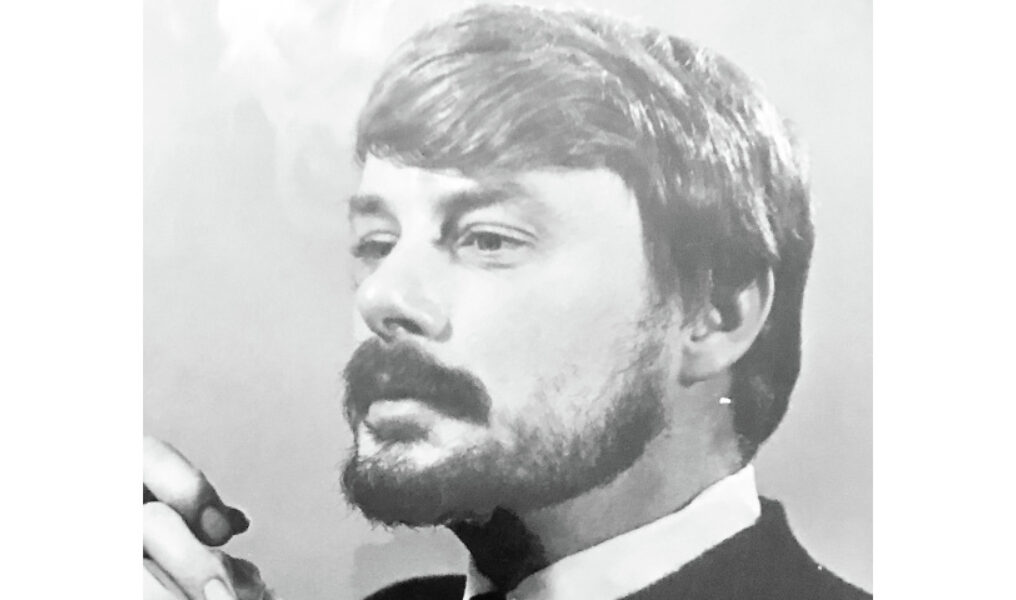Mainstream newspapers, including the Detroit Free Press and the Detroit News, the Lansing State Journal, the Traverse City Record-Eagle, the Flint Journal, and the Grand Rapids Press, have documented queer lives for decades, in both negative and positive fashion …
until recently, access to even mainstream content has been limited to what had been clipped for library vertical files or cataloged in a few newspaper indexes. New full-text databases such as ProQuest Historical Newspapers and newspapers.com promise to open to fresh avenues to Michigan's LGBTQ past.
The raw evidence of local LGBTQ history is increasingly available in various archives, although a visit to use materials on site is required.
This is an excerpt of a 2016 Pridesource Magazine article that BTL contributor Tim Retzloff completed. To find out more ways to research about LGBTQ history, drag and otherwise, go online to pridesource.com for this full story.
An auspicious year for female impersonators and those in Detroit's transgender community was 1927. In that year Mae West's play "The Drag," written under her pen name Jane Mast, opened with trial runs in New Jersey and Connecticut. The play never made Broadway, on or Off.
West, who herself would be many a drag queen's model and inspiration with phrases like, "Come up and see me sometime, big boy!" and "Is that a pistol in your pocket, or are you glad to see me?" She was well-loved by the hoped-for Broadway hit Ray Bourbon — who, following a gender reassignment surgery, changed her name to Rae.
Forty some years later, Bourbon would highlight Detroit's then famous drag bar, The Diplomat, located at 8540 Second Blvd., a few blocks north of the Fisher Theater (an opulent movie palace turned into a legitimate theater show place). Bourbon would eventually exit "the Dip" and die in prison.
Detroit's early days of cross-dressing took place at a slightly sleazy Third Avenue venue named, perhaps in a touch of high class, the Sweet Heart Bar. Those who did cross-dress felt safe dropping in for drinks now and then, content to know their secret lives were just that: secret and safe, because the Sweet Heart paid the liquor commission inspectors to look the other way.
During World War II years, the bar, with its jukebox — six plays for a quarter — attracted a few gay soldiers and sailors on leave, often replete in their own stylish military uniforms.
Wearing clothes that didn't conform to regular gender stereotypes, by city law, was permitted only at Halloween. The law also stated that known homosexuals were not permitted to gather where liquor was served (one supposes 'known' homosexuals could be identified by whether they drank cocktails from a straw instead of in a manly fashion from 25-cent bottles of beer).
At Halloween, Farmer & Bates streets, where three gay bars were located: the Rio Grande — later 1011 — LaRosa's and the Silver Dollar, were cordoned off to traffic, and it seemed every courageous cross-dresser and drag queen held center stage. Especially so as straight tourists gathered by the dozens to gawk, applaud, whistle or be embarrassed (but closeted) at the seemingly endless display.
I was 19 when I attended my first Halloween parade in downtown Detroit — three blocks away from old City Hall and one block away from the 1st Precinct Police Station. I was startled and chagrined to see the man I had been dating for six months, Dick Bodie, walk by in full drag: Lipstick, mascara and a wig.
That ended that. I just wasn't into women, cisgender or briefly made-up for Halloween (Dick soon after moved to New York with a girlfriend to become a follower of Ayn Rand and her right-wing objectvism).
Ironically, I celebrated my 21st birthday with my second go-around at gay romance by attending a performance of the up-and-coming drag group from the west coast: the Jewel Box Review. It was at the Flame Show Bar, a black-and tan bistro on Detroit's Brush Street (Black and tan was a euphemism for those establishments catering to black/white mixed clientele. Storme DeLarverie, famed black male impersonator, was emcee. Throughout her life she did indeed have many stormy encounters with the law and police. She died at 74 in 2014.)
In 1968, following Detroit's rioting the year before, the Tigers won the World Series and pitcher Denny McClain was the city's hero. At the same time, tension was in the air. That year's Halloween on Farmer & Bates got out of hand. There was catcalling, fist-waving, barrier-battering and rock-throwing at the drags, queens and gays.
It was then that Detroit's gay scene shifted north. The Woodward bar increased in popularity (I started going there in 1959 when I was 23). And drag as full-fledged, top-notch entertainment made Bookie's Diplomat bar an "in" place to be on weekends in the '60s and early '70s (it was there that I saw Ethel Merman and Liberace drinking).
At first the Diplomat abided by its "cross-dressing" restriction: "no cross-dressing in public places, or where liquor is sold until Halloween" (on a side note, lesbians from Canada who were dressed too much like men were not allowed entry here by U.S. Border Customs).
Bookie, who knew a thing or two about managing a good gay bar and drag queen entertainment, had previously managed the Silver Dollar on Farmer & Bates for his brother-in-law.
Bookie — Sam Stewart — treated his customers well. Occasionally bailed them out of jail, and if you were sitting too close to a vice officer — Miss Tillie in gay street lingo — Bookie would have one of his bartenders send you a free drink. Signal: Careful Mary, you're sitting next to a vice cop.
Among the first drag queens to perform at Bookie's were an uneventful looking twosome. Billy & Maurice. Uneventful, because of the Michigan Liquor Commission ruling on cross-dressing, their drag was limited only to facial makeup, black shirts and pants.
Billy & Maurice didn't lip-synch to recorded music. They sang songs to the piano music of Arnie Rose, who had been a once popular background pianist at the 1011, next-door to the Downton Silver Dollar. Songs sung were in risque English and presumably questionable French.
It didn't take long after their departure of the rather plain — but sincere Billy & Maurice duo — for the drag queen line up at the Diplomat to increase. Big time. As things eased up with the Liquor Commission — perhaps an under-the-counter agreement with Mr. Stewart helped — full drag for legitimate stage entertainers was acceptable. Expected. A draw for gays and gay friendly patrons.
Weekends often included appearances by half a dozen drag queens. "Tonight's the night for a fabulous time!" was the opening line drag emcee Lola-Lola welcomed the usually full house of spectators. One by one she'd call the entertainers on stage to get the night's festivities underway.
"Let have a round of applause for … former first-base, Tigerette-turned-pinch hitter, Miss Bobby Johns … Chunga (and her live, non-feather boa for special, legs-akimbo charming) … Vickie Marlene (and her total gold body makeup) … Fat Jack (and her yellow polka-dot bikini) … and Lola-Lola, little ole me, who lives for love! And, if you'll permit me: just a humping or two of the these gold lame, Christine Jorgensen designer stage curtains."
The real drag queen star of the Bookie's venue wasn't Lola Lola, Chunga with her live boa or Vickie Marlene, who passed out because her gold-embossed body caused her to collapse and fall into the audience while dancing. It was the one-and-old Fat Jack, "a quarter ton of fat and fun." Real name Jack Genore, he lip-synched to the then popular hit, "Yellow Polka-Doted Bikini" (the famed bikini was later raffled for an LGBT fundraiser)."
An occasional glamorous full-time cross-dresser seen at the Dip' was the stunningly beautiful Gail Sherman, then in her ravishing, brunette 30s (stories circulated for years that a straight guy, then a grad student at Wayne State University, committed suicide behind the Dip because of being rejected by Sherman, in their secret romancing).
With big names now and then in the Diplomat audience (Merman performed a signature song; Liberace, surprisingly butch) the booking of Mae West's Broadway Drag Queen, Rae Bourbon, now in his 60s, was cause for excitement ("who's Rae Bourbon?" Some wondered. Jaded queens all, no doubt.)
Unfortunately, Rae's starlit stairway was soon to collapse on her. She — now a fully trans person — was "paid" after each performance, because of back taxes owed to the IRS. She also used too much borrowed material from her once-risque mid-'50s LP, "Around the World in 80 Ways!" Nothing new for jaded drag queen titillation.
Rae's career ended on a sad note. She had two dogs. Poodles Mae and Maybee. She felt the vet caring for them had somehow abused them or charged the fabulous Rae too much for their care and keep. Rae hired thugs to rough up the vet. They accidentally killed him. Rae was sent to prison where she died in 1971.
The Diplomat closed in 1972, due to a fire from miswired electrical outlets. Bookie went on to own and host other LGBTQ gay bar ventures. He died in 1984. Next time you play Drag Queen Bingo, keep Bookie in mind. He made Detroit's gay life a truly rainbow experience. I know. I was there. Unfortunately, or fortunately, Never in drag.
In celebration of drag history, the Ruth Ellis Center will host the first ever Catfight for the Crown on June 1 at the Fillmore Theatre, 2115 Woodward Ave.
Eight amateur contestants will fight for the title of Miss Kitty in categories of evening wear, swimsuit, talent and interview segments. The Catfight for the Crown is an elaborate, "tongue-in-cheek" drag show "beauty" pageant that brings forward a unique, over-the-top, entertaining and interactive way of raising critical funding to support the Ruth Ellis Center.
For Catfight for the Crown sponsorship opportunities, please contact Mark Erwin-McCormick, Director of Development and Advancement at Ruth Ellis Center at 313-252-1950. Visit http://ruthelliscenter.org for more information. To purchase tickets, visit http://universe.com/catfightforthecrown.










